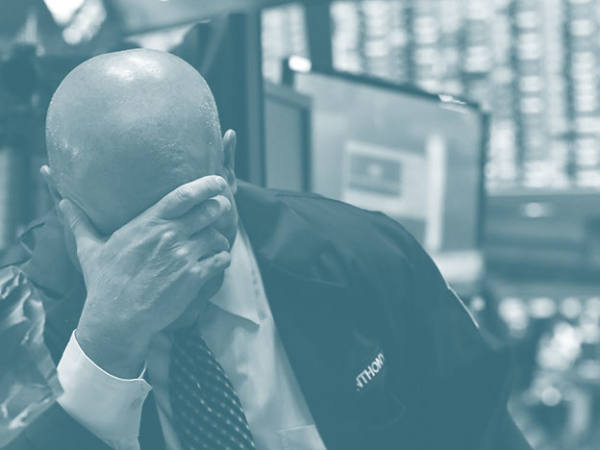Record banker bonuses, the arrival of a scarily profitable new asset class and an inability to buy a Big Mac in Moscow. Sound familiar? Of course the 1980s comparison is not perfect – wage indexation is not what it was 40 years ago, for one thing – but these few factors alone are enough for storied texts such as Liar’s Poker, Michael Lewis’ first book, to hold plenty of insight for us today.
To quickly recap the story, Lewis tells the reader: Salomon Brothers was the top dog for bond trading on Wall Street from the late 1970s onward, raking in billions from the trading floor. Lewis manages to get hired after a chance meeting with some bigwigs at St James’s Palace. While he weaves in his experiences of training to be a trader and his time in London, the real stars are the Wall Street heavyweights who reshaped US financial markets.
“Salomon Brothers mortgage traders rode roughshod over both the largest capital market in the world and their own firm, which was by far and away the most profitable on Wall Street,” Lewis writes. Inside Salomon, the development of the mortgage-backed securities market was down to Lewis Ranieri. It became Salomon’s profit driver in the early 1980s. It wasn’t fully legal when it began, however.
“...[In] several [US] states mortgage securities were still illegal investments, a condition Ranieri didn’t fully accept,” Lewis writes. “In a meeting, he screamed at a lawyer whom he had never met, ‘I don’t want to hear what lawyers say, I want to do what I want to do.’”
This asking for forgiveness rather than permission approach will be familiar to anyone who has followed the crypto industry. US company BlockFi, as an example, was hit with a $100mn (£77mn) fine last month after offering a crypto lending product that effectively gave investors a yield from their holdings.
Lewis also explains how Ranieri made assets such as collateralised mortgage obligations (CMOs) and the closely-linked collateralised debt obligations (CDOs) a prominent part of Wall Street offerings. These brought the global financial system to its knees 25 years later, but in Liar’s Poker, Salomon’s only failing in this space is to let Ranieri’s disciples leave and share their knowledge with the rest of Wall Street for much bigger pay packets. The lesson: if you’ve cornered the market, pay the people who actually did it whatever they want.
But the final chapters of the book offer one particularly close comparison for today's crypto rush, especially when it comes to the risks of institutions diving in without properly understanding what they are buying. These pages focus on high-yield – otherwise known as junk – bonds.
Milken it
Michael Milken was the man who picked junk bonds as an underappreciated slice of the bond market as early as 1970. His thesis was that companies with junk borrowing status could only improve or go bust, and most would not go bust, so the value of their bonds would go up, much like equities. This took some time to get picked up by Wall Street. But Milken’s pitch eventually found enough willing ears and, by the mid 1980s, demand for high-yield debt went wild, with the value of these bonds issued climbing from $839mn in 1981 to $12bn in 1987, according to Lewis.
Salomon bond traders – stuck in a firm that was not embracing the junk revolution – awaited Milken’s call with increasing desperation, thanks to the massive pay cheques he handed out.
Nowadays, the flow of finance professionals heading for the crypto world won't get the same starting salaries, but there are other rewards. Often start-ups will give new hires equity in the business or exposure to crypto-assets. Yes, Goldman Sachs (US:GS) employees can buy shares in the company before they become partners, but no bank can compare with the growth of the crypto trading houses in recent years.
To make a direct comparison in terms of generating a similarly extreme level of wealth from a bold new idea, the best recent example is Binance founder Changpeng Zhao, known as CZ.
The similarity comes from the apposite timing and the supreme cash flows produced – even if some of those flows are now in non-fiat currency. Bloomberg’s Billionaires Index puts Zhao’s wealth at just over $60bn. While this is down from $98bn last year (and is a very vague estimate based on Binance’s valuation and his bitcoin ownership), he has leapt into the wealth stratosphere in just a few years after founding the exchange in 2017. Most crypto businesses will not be as successful as Binance – about which the UK's Financial Conduct Authority has made several warnings in recent months – but with a promise of equity alongside job offers, there is some serious cash to be made.
A former Citigroup executive now running Coinfund told Dow Jones title Financial News last month that it was a breeze recruiting people. “Talented people leave [banks] because they work on crypto projects, the lightbulb goes on and they realise they can do more outside of a bank,” he said.
Banks are hoping to get in on the act themselves. Goldman Sachs is also reportedly building an over-the-counter bilateral crypto options offering for hedge funds and bitcoin miners, according to Bloomberg (fun fact: Michael Bloomberg was also a partner at Salomon Brothers), and exchanges are already selling crypto derivatives for traders.
Clearly, there are major differences between junk bonds and cryptocurrencies. Junk bonds are still bonds, familiar to the establishment, while cryptos to many are a pyramid scheme with no underlying value. While high-yield bonds are an established and mainstream part of the investment world nowadays, much like mortgage securities, the 1980s craze didn't have a particularly happy ending. Milken ended up in jail amid a fraud scandal.
For the crypto advocates, Lewis’s tough judgments of Salomon’s leadership in the mid-to-late 1980s show the pickle the traditional financial sector ('TradFi' if you’re in the crypto camp) finds itself in over digital currencies: “They thought junk was a passing fad. That was easily their single most expensive oversight, for it precipitated… a revolution in corporate America”. But it's still too early too tell whether the banks’ current interest in all things crypto is a belated attempt to catch up with reality, or an ill-advised move by organisations with too much cash on hand.











